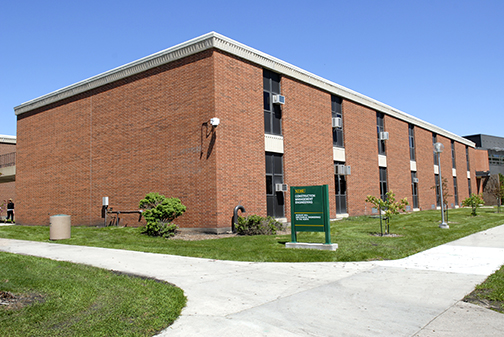Manufacturing engineers make things. Everything manufacturing engineers do is ultimately tied to the production of goods. Almost everything we use, whether at home, at work, or at play, is manufactured. By its official professional definition, manufacturing occurs when the shape, form or properties of a material are altered in a way that adds value. Manufactured goods are everywhere: aircraft structures, machinery, electronics, medical devices, automobile parts, household products, toys, textiles and clothing, cans and bottles—virtually everything we use.
The Profession
Everything needed in modern society is manufactured. Manufacturing engineers design, direct and coordinate the processes and production systems for making virtually every kind of product from beginning to end. As businesses try to make products better and at a lower cost, they turn to manufacturing engineers to find out how.
Manufacturing engineers apply scientific principles to the production of goods. They are key team members in production of a wide range of products: automobiles, airplanes, tractors, electronics, surgical instruments, toys, building products, foodstuffs, sports and recreational equipment, and more. In all cases, manufacturing engineers design the processes and systems to make products with the required functionality, to high quality standards, available when and where customers prefer, at the best possible price and in ways that are environmentally friendly.
The Program
The Department of Industrial and Manufacturing Engineering (IME) at North Dakota State University offers two programs leading to either a Bachelor of Science degree in Manufacturing Engineering or Industrial Engineering and Management. The Bachelor of Science in Manufacturing Engineering program accredited by the Engineering Accreditation Commission of ABET, https://www.abet.org, under the General Criteria and the Manufacturing and Similarly Named Engineering Programs Program Criteria.
As a graduate of manufacturing engineering, you will have the opportunity to design systems and processes that improve the quality and productivity of an organization’s business activities. You will employ a strong base of fundamental engineering and management skills to effectively integrate people, technology, machines and money to create positive change. Quite simply, you will design and implement the best way to make things.
Faculty and Facilities
The faculty and staff members in the department have extensive experience in industrial and manufacturing specialties. The IME faculty and staff will know your name, understand your potential and problems, and will offer encouragement when you need it. When you leave NDSU, you will have built excellent capabilities for career success, the confident ability for lifelong personal growth, and a network of friends and professional colleagues.
The IME department is housed in the Engineering Building, which is part of an eight-building engineering complex. The department has seven laboratories well equipped for teaching and research to provide valuable services in support of students’ educational and research needs. The departmental laboratories include computer simulation, human factors, automation and robotics, additive manufacturing engineering, quality & reliability, SPACHES, PLC’s, manufacturing/fabrication, rapid prototyping, CNC machining, and microfabrication, as well as electronics, welding and precision manufacturing.
Career Opportunities
The IME programs at NDSU can help you to open the door to various opportunities for starting your professional career in a wide range of industries or to seek advanced degrees at NDSU or another institution. The IME programs will help you to develop a strong basis in general education and engineering fundamentals that provide the foundation for a very wide range of career choices and for a lifetime of growth. IME programs will help you develop industry-standard skills you can use to open the door to many career opportunities that can offer you financial rewards and exceptional professional success.
Manufacturing engineering graduates have become a source of talent working in industries that produce such products as biomedical devices, microelectronics, transportation and construction equipment, aircraft and spacecraft, and processed foods. Recent IME graduates command starting salaries in the top rank of engineering disciplines. According to Payscale.com, the national average salary was $74,018 in February of 2023 (https://www.payscale.com/research/US/Job=Manufacturing_Engineer/Salary).
Transfer Admission
Students who transfer with an AA or AS degree will have lower division general ed credits satisfied.
Scholarship and Financial Aid
The Department of Industrial and Manufacturing Engineering awards several scholarships annually. Scholarships are available for incoming freshman, transfer students and currently enrolled students. Other forms of financial aid are available through the Office of Financial Aid and Scholarships.
Selective Admission
Transfer students must have a minimum grade point average of 2.3.
MANUFACTURING Engineering Minor
Students majoring in any engineering discipline may elect a minor in Manufacturing Engineering. These optional studies offer engineering students the opportunity to add important career-enhancing skills to their technological competencies. Total requirement is 18 credits (12 credits are required courses and 6 credits of approved electives).
Sample Program Guide
IMPORTANT DISCLAIMER: A Sample Program Guide provides an unofficial guide of program requirements and should be used by prospective students who are considering attending NDSU in the future. It is NOT an official curriculum and should NOT be used by current NDSU students for official degree planning purposes. Note that the official curriculum used by current NDSU students can vary from the Sample Program Guide due to a variety of factors such as, but not limited to, start year, education goals, transfer credit, and course availability.
To ensure proper program completion, enrolled students should utilize Degree Map and Schedule Planner in Campus Connection and consult regularly with their academic advisor to ensure requirements are being met.
DEGREE NOTES:
- Grades less than ‘C’ will not be accepted for required courses in CHEM, MATH, and PHYS.
-
Students may request approval for other 300-400 level engineering or related courses to be approved as technical electives. To request approval, a student should submit a request to the IME Department indicating the course of interest and why the course should be approved as a technical elective. This request will be reviewed by the IME Department Chair for approval.
- 300-400 level BUSN courses require at least junior standing and a minimum 2.50 cumulative GPA.

